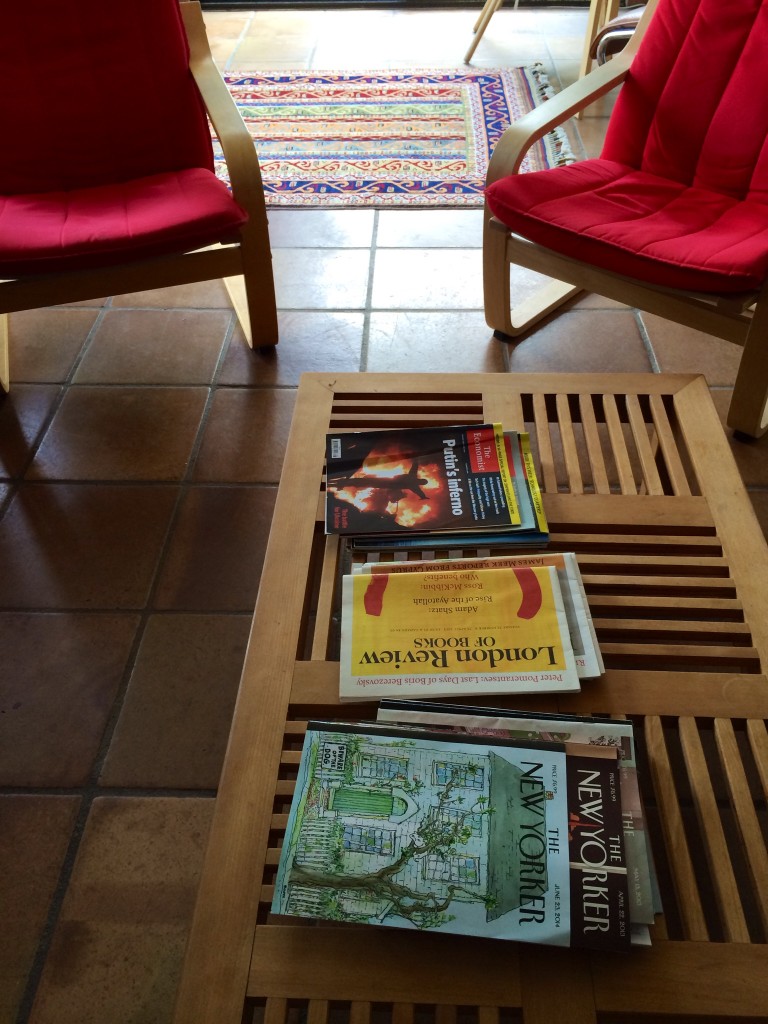The only really unpleasant aspect of the German team’s demolition of their Brazilian opponents in the world cup was the inane commentary of the British TV commentators and pundits. They were as staggered by the comprehensiveness of the Germans’ superiority as were the wretched Brazilian spectators, but lacked the verbal sophistication to articulate a single interesting or original thought. Instead what came flooding out was the incessant burbling of tired cliches. The Germans were “clinical”, “ruthless”, “relentless”, “efficient”, etc. etc.
What these hapless pundits were doing, of course, was expressing the subliminal prejudices of many of their fellow-countrymen (I was going to write ‘fellow-citizens’ until I remembered that Britain doesn’t technically have any citizens; it only has subjects — one of the USPs of living under a monarchy) about Germany. It’s as if Brits are living in a time-warp from which most of the rest of the world has long escaped. You’d never gather from reading the British tabloid media that, in almost every aspect of modern life that matters, Germany has long ago met the criteria for a modern, liberal, democratic, prosperous and sustainable society, whereas Britain remains chronically addicted to imperial afterglow, public and private debt, an overweening financial services industry, housing bubbles, corrupt campaign funding, short-termism and circuses like those provided by Premiership football.
Roger Cohen had a nice piece in the New York Times the other day which makes this point rather well. The world-beating German football team, for example, is the product of long-term planning, of nurturing homegrown talent. And this is typical of the country. Germany, Cohen writes,
does not believe in quick fixes. It is worth repeating because it is an idea that sets the country apart in an age where a quick killing, tomorrow’s share price, instant gratification and short-termism are the norm. Germans on the whole think what the rest of the world builds is flimsy. Anyone who has felt the weight of a German window, or the satisfying hermetic clunk of one closing, knows they have a point. The German time frame is longer.
Why Germany differs in this may be debated. Having plumbed the depths of destruction and evil, having understood the depravity into which a “civilized” country may descend, Germany had to rebuild from the “Stunde Null,” or “Zero Hour,” of 1945. It had to hoist itself up step by step; and it had to build into its reconstituted self the guarantees that ensured no relapse was possible. This took planning. It took persistence. It involved prudence. Even before all this the first German unity of 1871 came only after centuries of strife at the European crossroads. Geborgenheit is an untranslatable German word but no less important for that. It means roughly warmth, home, trust and security, everything that is so precious in part because it may go up in smoke.
Perhaps German success is the result of the immensity of past German failure. I think that has something to do with it, even a lot. Whatever its roots, German success is important and instructive.
It is. Much of what I find admirable in German society is the product of what the BBC commentators found awe-inspiringly weird about the German performance: careful preparation, long-term thinking, persistence, a pride in doing things well. I’m a photographer and I’ve always used Leica cameras, for example. I also use terrific cameras made by Nikon in Japan, but what’s striking about the German cameras is the extent to which those who make them are involved with the products they create. This video for example showing how the Leica M9 is assembled makes the point, as does this video of how the Rohloff Speedhub is made.
Of course one can find examples of wonderful products made in many other countries (think of Rolls-Royce aero engines or Maclaren racing cars in the UK, or Nikon and Canon cameras and lenses in Japan) but these are nowadays, exceptions that tend to prove a rule, whereas in Germany this high-tech engineering culture seems more pervasive.
There is also a radical difference in the managerial culture of German enterprises. Cohen writes:
If you talk to business leaders of the German Mittelstand, the small and medium-sized companies at the heart of the country’s economy, you are transported to another world. You sit in stark boardrooms, so devoid of indulgence they resemble classrooms, with unassuming people leading billion-dollar companies, and they speak of loyalty, 10-year plans, prudence and quality. If one word induces a look of horror, it is debt. The notion of making money with money, of financial engineering rather than engineering itself, is alien.
The contrast with the Anglo-American mindset into which the UK seems increasingly locked is stark. I know which I prefer.



